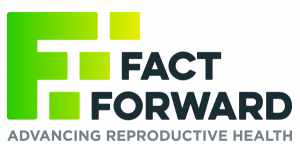In this training, participants will improve their skills in talking with adolescents about delicate topics and answering sensitive questions. By becoming an Askable Adult, participants will gain essential tools to support teens in making healthy decisions about relationships, love, and sex.
Training Hub
The Sex Education Collaborative Training Hub lists trainings for sex educators, facilitators, and other professionals on best practices for sharing important information with clients and the public. From teaching anatomy inclusively to effectively addressing bias in the classroom to addressing racial justice and equity in sex education, the Training Hub includes trainings, technical assistance, and policy support from state, regional, and national leaders in the field of sex education.
Please note: The Training Hub includes both in-person and online professional trainings. If you see a training you are interested in and it isn’t listed as virtual, please reach out directly to any of our members to find out what's possible!
Trainings Offered by State-Based and National Organizations
Displaying results 121 - 125 of 130Askable Adult: Talking to Teens About Tough Topics
- Indicator 1 (K-12): Demonstrate three techniques to create an inclusive and affirming learning environment. (S)
- Indicator 1 (K-12): Describe three distinguishing characteristics between healthy and unhealthy relationships, involving family, friends, and/or romantic partners.
- Indicator 2 (K-12): Explain three ways that healthy relationships can positively impact personal well-being.
- Indicator 2 (K-12): Demonstrate the ability to effectively respond to three different types of challenging questions. (S)
- Indicator 1 (K-12): Explain the differences between personal and universal values relating to sexuality.
- Indicator 2 (K-12): Describe how verbal and nonverbal expression of personal values, and comfort with topics related to sex education, could impact one’s teaching
Healthy Teen Network customizes techincal assistance and support to meet your unique needs.
Areas of expertise span a wide range of topics across adolescent sexual and reproductive health, evidence-based approaches, curricula, working with diverse youth, training adult professionals, innovation and research, human-centered design, advocacy and public policy, strategic planning, sustainability, and more.
SIECUS’ policy team brings to bear 55 years of research-based expertise on comprehensive sex education to ensure that public policies reflect best practices and current research in support of our nation’s young people. Our agenda is simple: SIECUS advances comprehensive sexuality education as a means of building a foundation for a long-term culture shift that will positively impact all levels of society, particularly issues of gender equity, sexuality, sexual and reproductive health, consent, personal safety, and autonomy. Through technical assistance to states, SIECUS’ staff support states in educating advocates and policymakers about providing rights-based sexuality information and education at the federal, state, and local levels and leading, strengthening, and developing partnerships with other organizations, coalitions, and initiatives to advance policies that promote positive sexual and reproductive health outcomes across the lifespan. Technical assistance is focused on meeting a state’s immediate needs in a timely way.
Sexual & Reproductive Health 201
In this training, participants will:
- Explain sex determination and differentiation.
- Explain how the interaction between chromosomes, hormones, and in-utero development impacts the development of reproductive organs and the brain.
- Describe reproductive anatomy and physiology in a gender-neutral and inclusive manner.
- Identify the major organs of the reproductive and sexual anatomy, both internal and external, including those related solely to sexual pleasure.
- Identify the role of the hypothalamus, anterior pituitary, and the gonads and their respective hormones in moderating the feedback cycles that initiate puberty and control the menstrual cycle and sperm production.
- Describe the menstrual cycle, including hormonal, ovarian, and uterine cycles.
- Explain the role of the clitoris, g-spot, urethra, vagina, and female ejaculation in female sexual arousal and orgasm.
- Apply this content to conversations with youth in a manner that is medically accurate and developmentally appropriate, using accessible language and terminology.
- Indicator 1 (6-12): Explain fertilization, implantation, conception, and how pregnancy occurs.
- Indicator 1 (K-5): Explain the benefits of teaching young children the medically accurate terms for genitals.
- Indicator 2 (K-12): Demonstrate the ability to use medically accurate terms for sexual and reproductive anatomy, including all external genitals. (S)
- Indicator 3 (K-12): Explain the function of the individual sexual and reproductive body parts and how they typically work.
Human Trafficking 101
This is the first in a series of eLearning units focused on human trafficking. Subsequent units include content specifically for medical providers, educators, parents, caregivers, faith-based professionals, and other youth-serving professionals to better understand the role they can take in addressing sex and labor trafficking. Via an interactive, self-paced unit, participants will explore critical elements of sex and labor trafficking and steps they can take to support victims and survivors in your community. This unit promotes learning though stories, activities, and short quizzes.
Through Healthy Teen Network’s partnership with the University of Maryland School of Social Work’s Prevention of Adolescent Risk Initiative, we are pleased to share resources on human trafficking. Although these resources are focused on specifics for the state of Maryland, anyone from any state can learn about human trafficking as well.
Additional Trainings offered by out-of-state organizations
- ‹ previous
- 42 of 42
What’s Up with Teens These Days?
Participants will gain an understand of normal patterns of development during adolescent and discuss strategies for being empathetic toward youth in their lives.
This training is designed for:
- Parents
- Clergy
- Community Workers
- Prom Chaperones
- Educators
- Indicator 1 (K-12): Describe three health (e.g. physical, social and/or emotional) and/or academic benefits of sex education for young people




